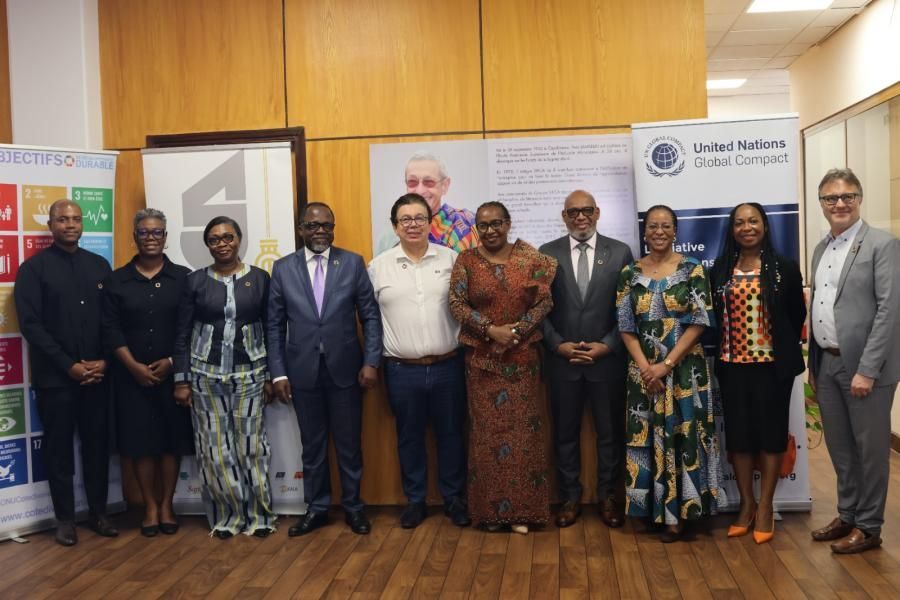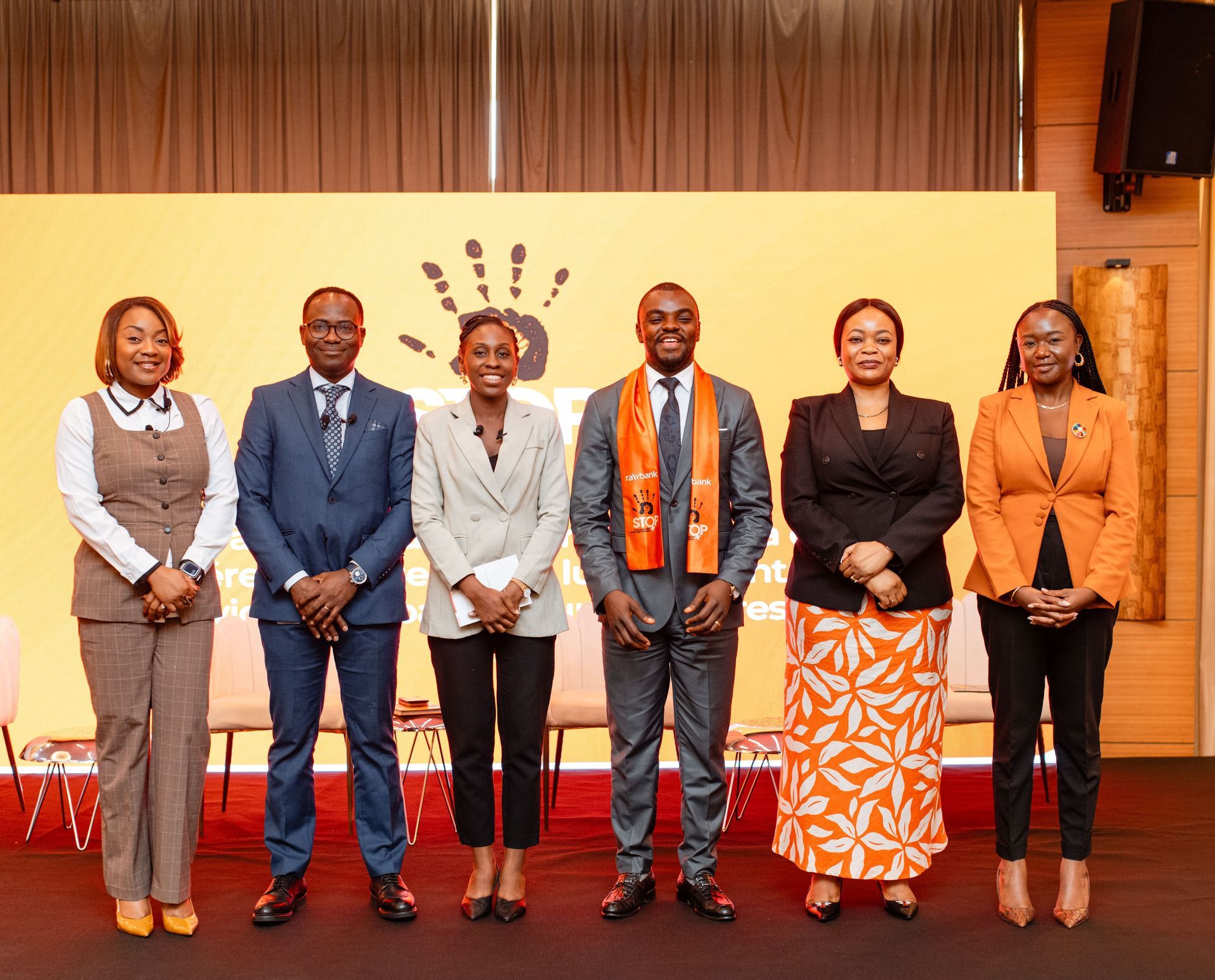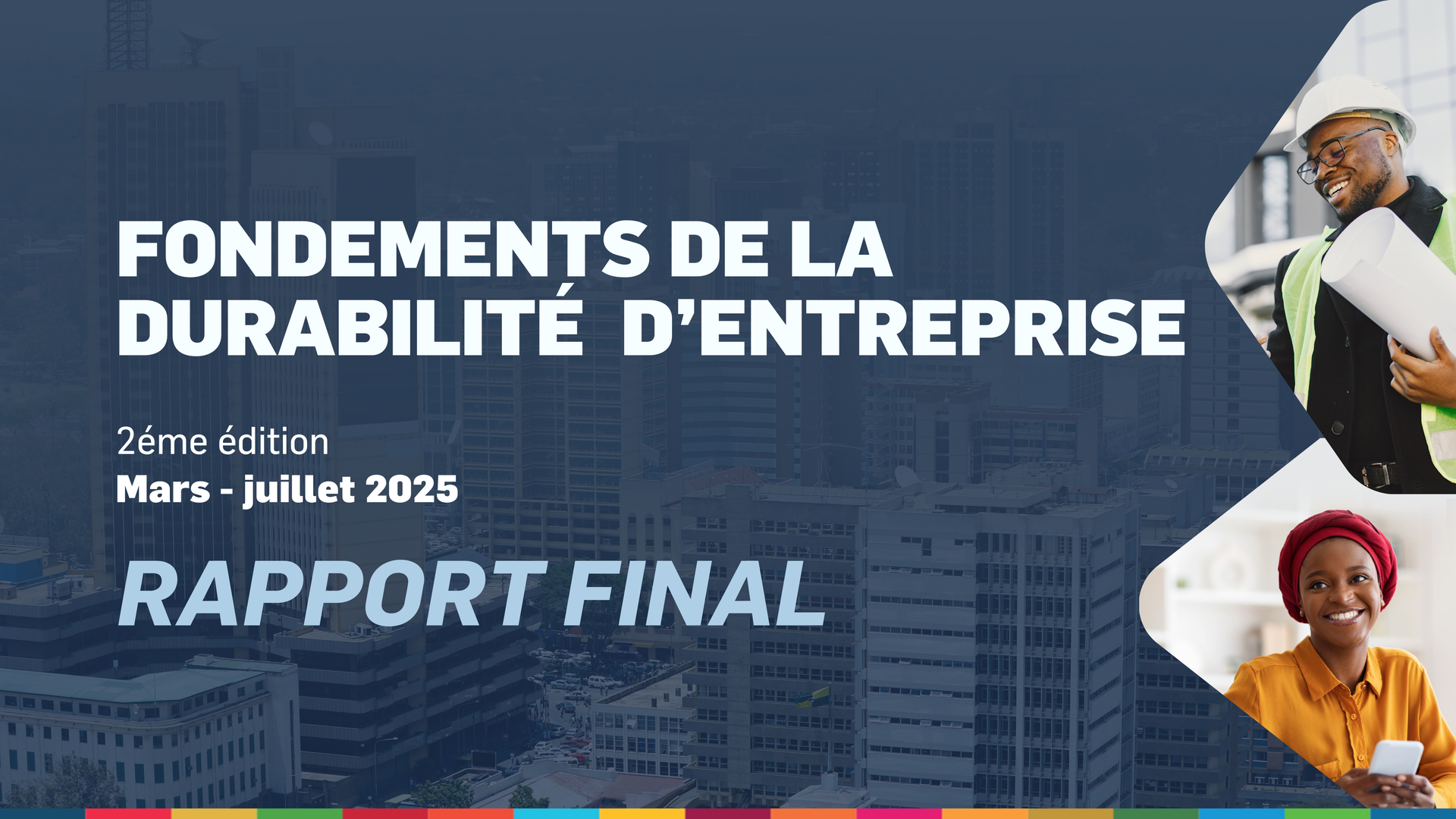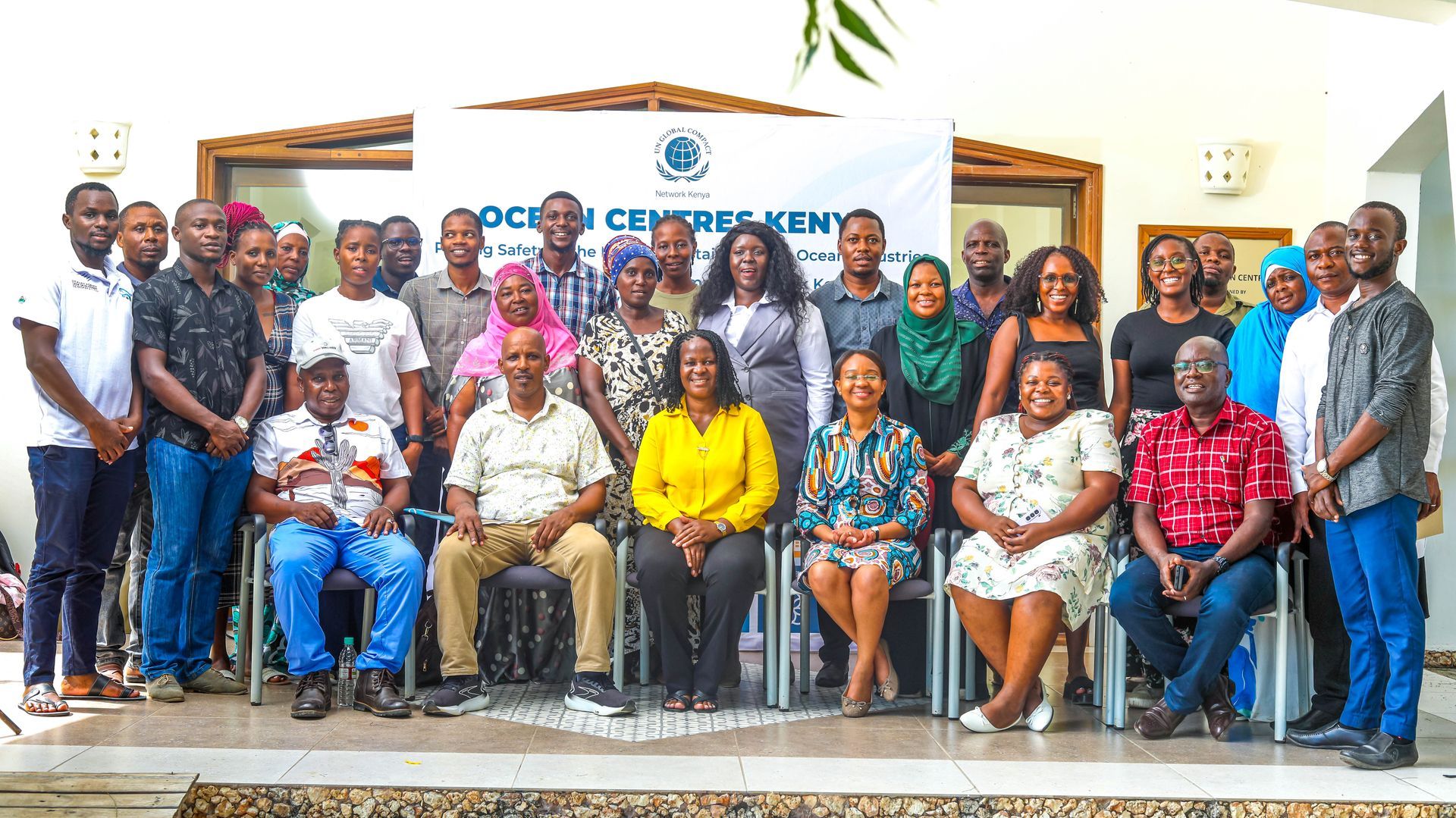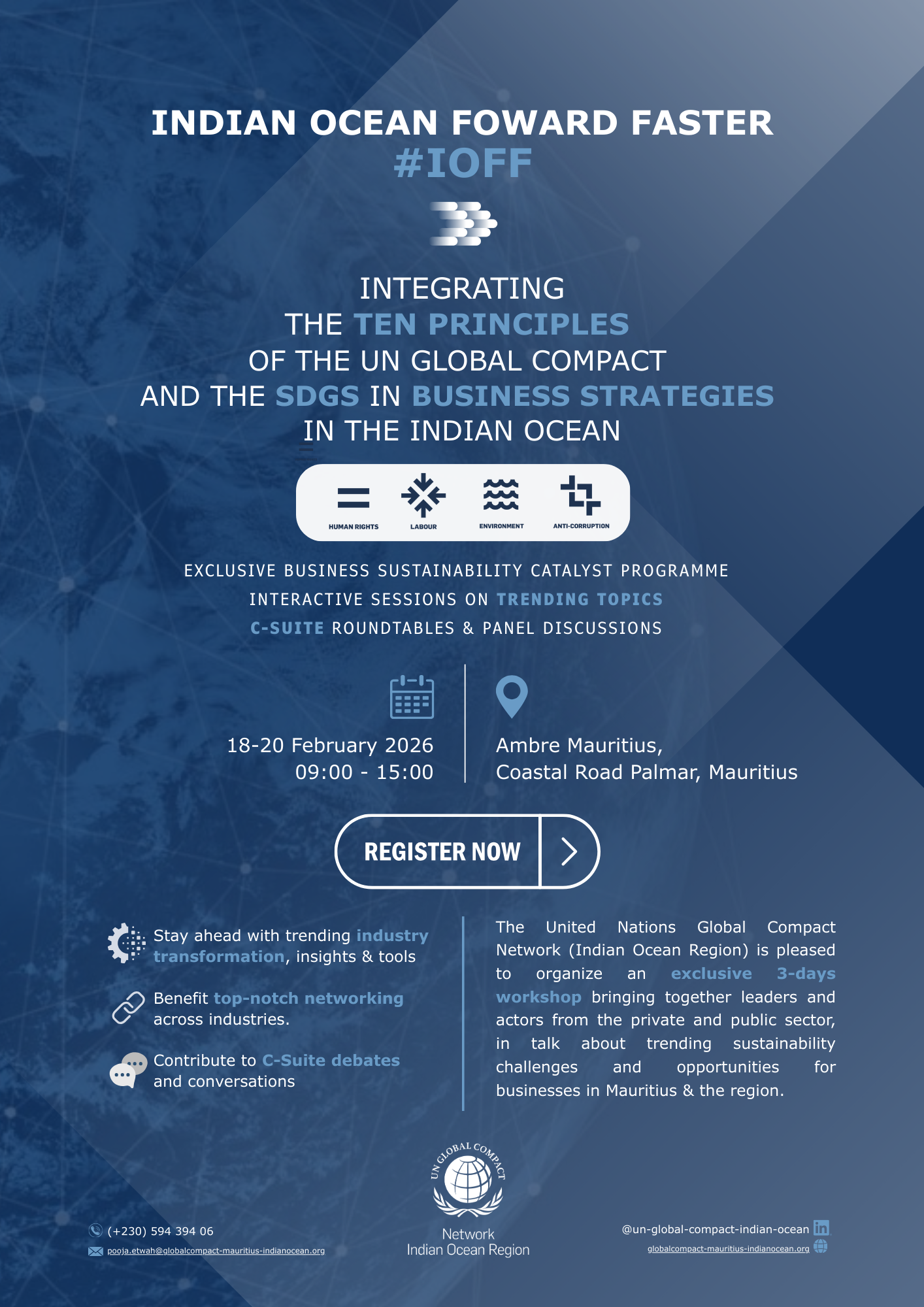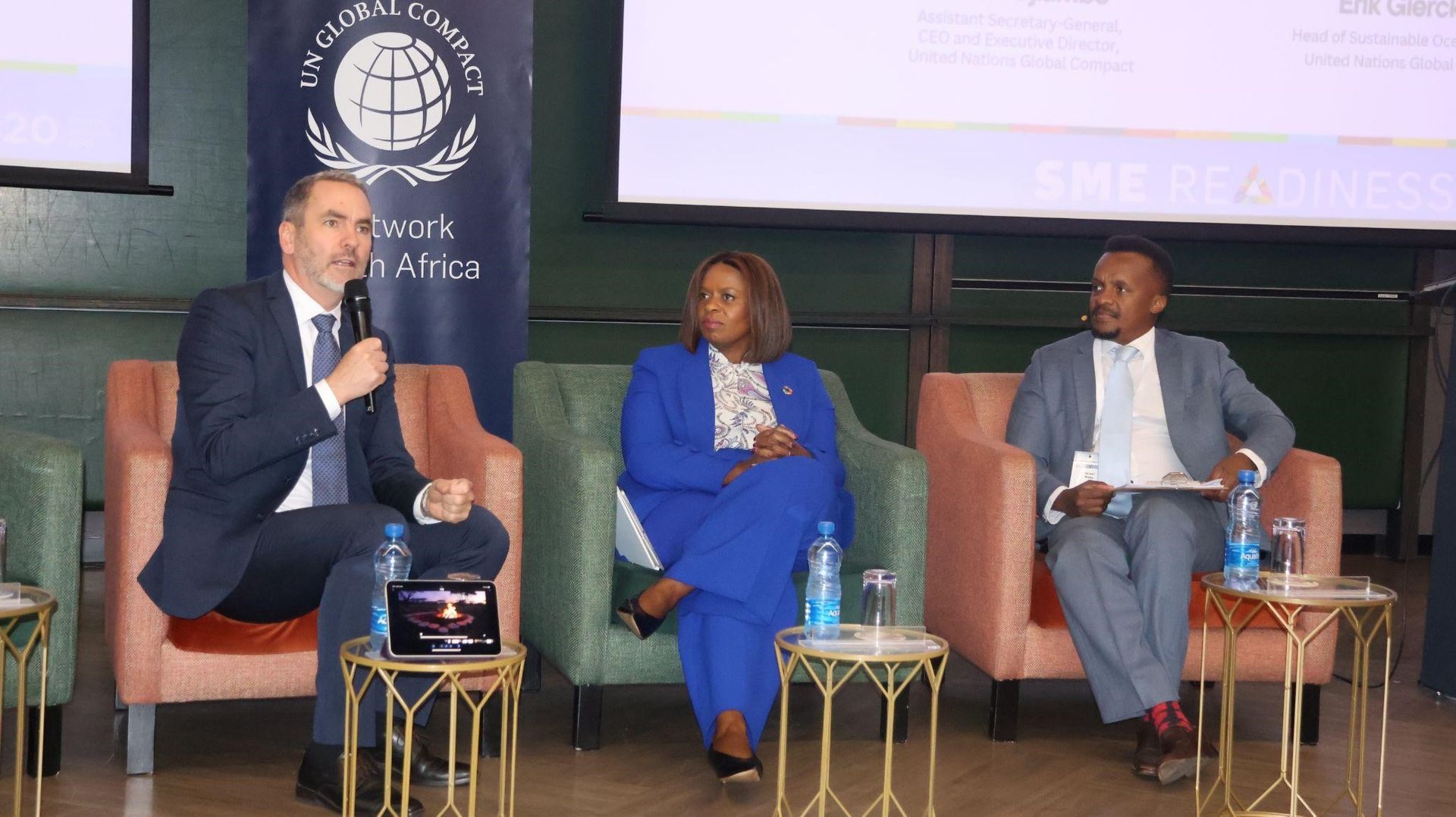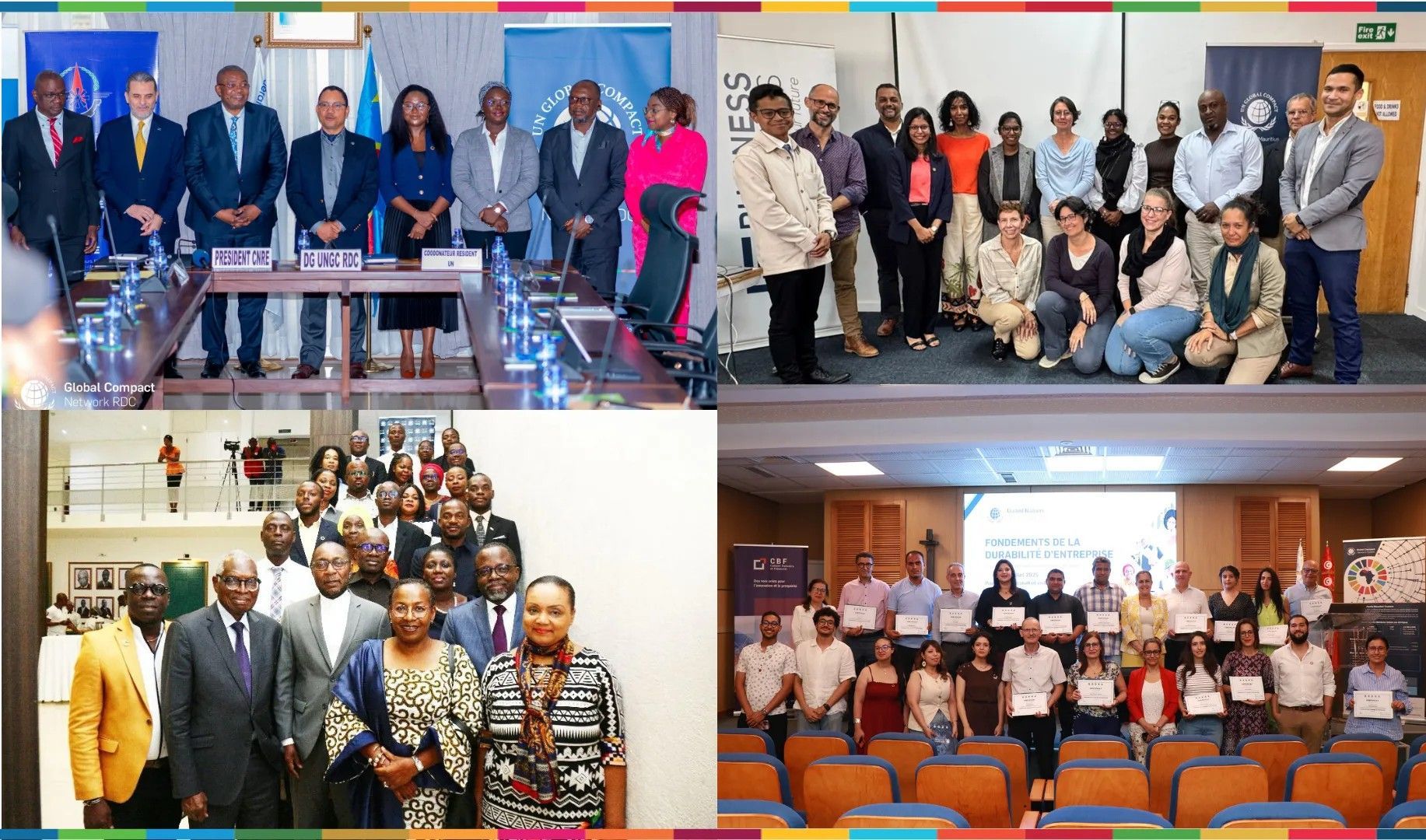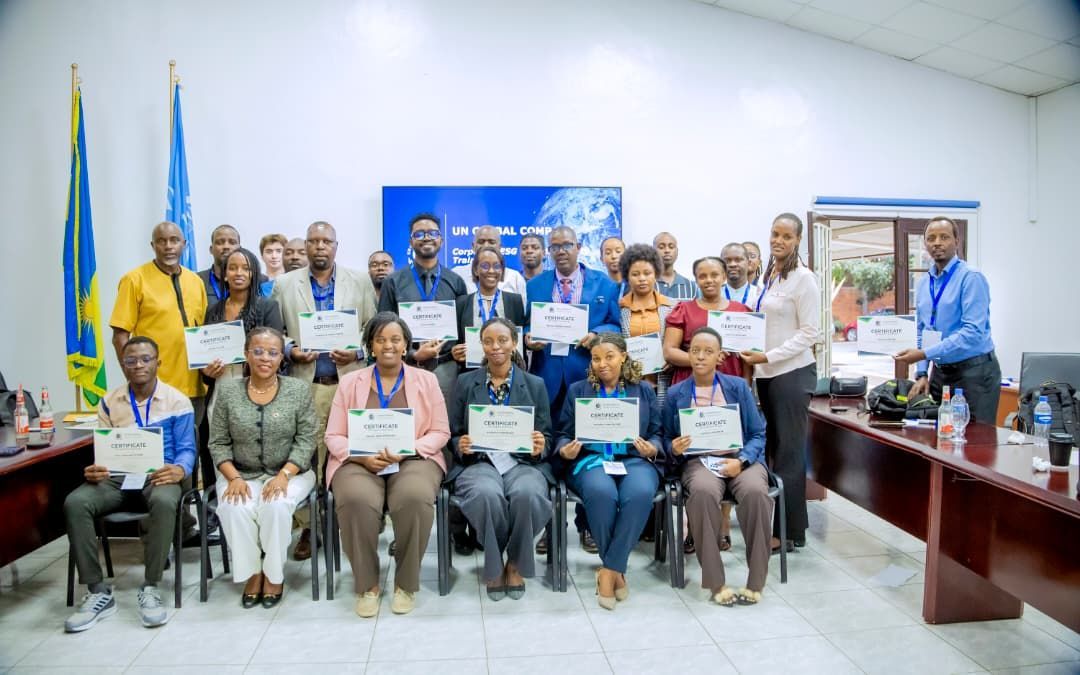UN Global Compact Network Nigeria and IHS Towers Convene Business Leaders For Private Sector...
UN Global Compact Network Nigeria and IHS Towers Convene Business Leaders for Private Sector Dialogue on Environmental Stewardship
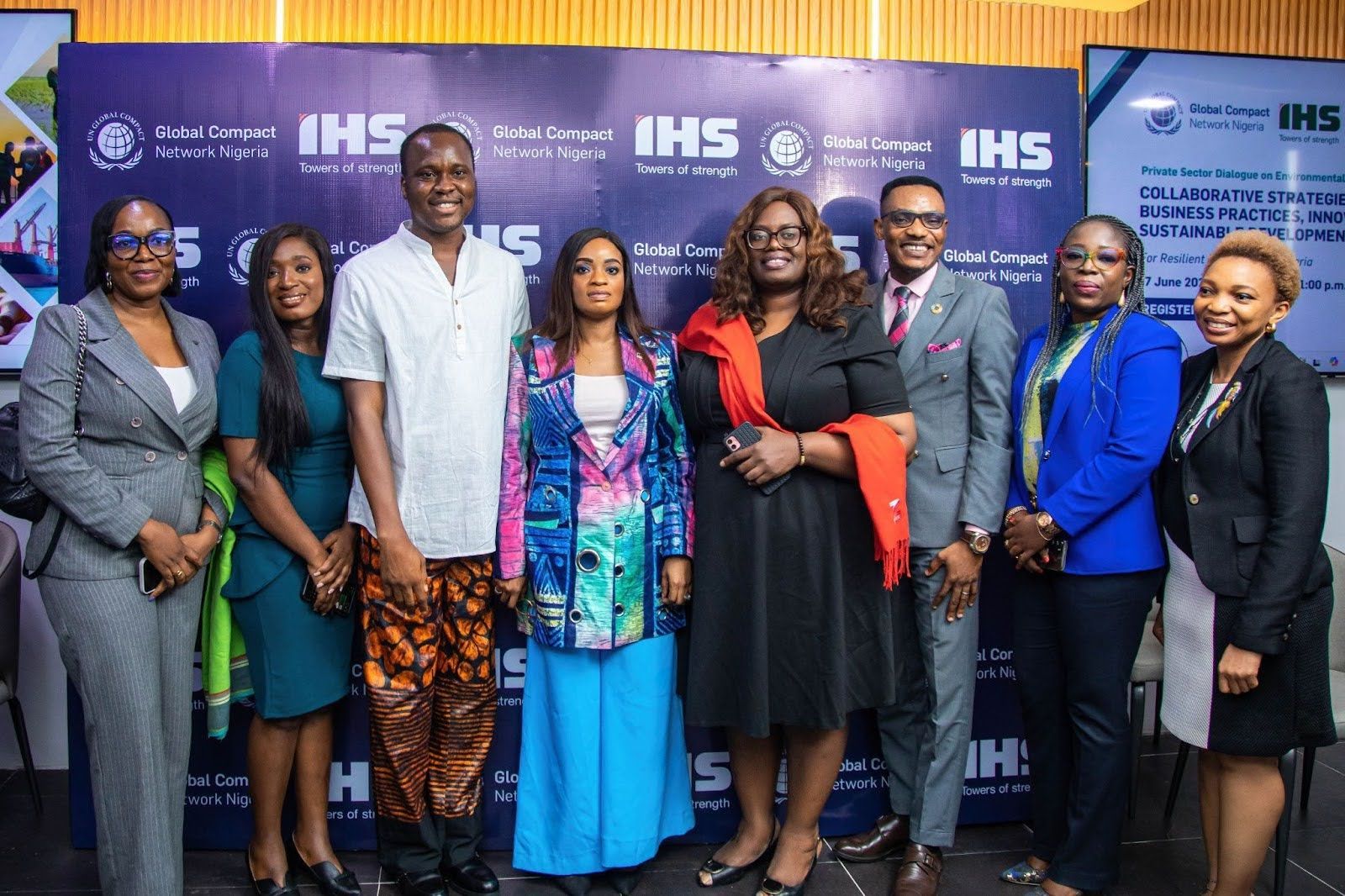
On June 17, 2025, business executives, sustainability champions, legal experts, financiers, and environmental advocates convened in Lagos for a high-level dialogue themed “ Navigating Risks, Driving Impact: Collaborative Strategies for Greener Business Practices, Innovation & Sustainable Development in Nigeria ”.
Organized by the UN Global Compact Network Nigeria and IHS Towers, this convening was part of post-World Environment Day activities under the theme #BeatPlasticPollution. It spotlighted the growing urgency for the private sector to move from passive awareness to active leadership in confronting Nigeria’s critical environmental challenges—from plastic pollution and flooding to oil spills, deforestation, and climate change.
Against the backdrop of Nigeria’s escalating environmental pressures—compounded by youth unemployment, infrastructural deficits, and overdependence on fossil fuels—the dialogue challenged businesses to rethink sustainability. No longer a tick-box CSR exercise, sustainability was framed as central to risk management, competitiveness, and long-term value creation.
Participants explored how private sector actors can become catalysts for resilience and innovation, unlocking green growth opportunities through clean energy transitions, circular economy models, and ecosystem restoration. A shared emphasis emerged: sustainable transformation demands not only innovation and policy alignment but also cross-sectoral collaboration and access to inclusive finance.
The panel session featured distinguished leaders who shared practical insights into how their sectors are driving sustainability from intent to action.
Titilope Oguntuga, Director of Sustainability at IHS Towers, outlined the company’s sustainability strategy grounded in four pillars: Environment & Climate, People & Communities, Education & Growth, and Ethics & Governance. She described IHS Towers’ transition from diesel-powered telecom infrastructure to hybrid solar solutions as a bold step toward emission reduction.
Lanre Babalola, Group Head of Climate Finance at the Bank of Industry, highlighted financing as both a barrier and an opportunity. He discussed BOI’s innovative tripartite lending model—in partnership with commercial banks—to deliver long-term, single-digit interest loans that help MSMEs invest in green technologies and business models.
Abimbola Agbeluaje, Head of Sustainability at Wema Bank, emphasized embedding sustainability across banking operations. From solar-powered branches and paperless processes to climate-smart agriculture financing and sustainability training for SMEs, Wema’s strategy integrates environmental stewardship into both internal systems and external impact.
Sylvia Jose, Lead on Biodiversity and Nature-Based Solutions at the UN Global Compact, brought an ecological lens to the conversation, advocating for the integration of nature-positive actions into business operations and brand identity. She underscored that biodiversity is not peripheral—but fundamental—to resilience, supply chain integrity, and economic stability. Her call to action: move beyond compliance to ecosystem restoration, employee engagement, and value chain innovation rooted in nature.
Panelists illuminated how business, finance, and regulatory actors can align to build a
thriving green economy for Nigeria. The dialogue concluded with a powerful reminder: sustainability isn’t just about saving the planet, it’s smart business. It is not exclusive to large corporations; MSMEs, individuals, and entire value chains all have a vital role to play through conscious actions, efficient resource use, and ethical practices. In this context, the UN Global Compact’s SPARK initiative—designed to empower SME suppliers to integrate sustainability, strengthen compliance, and unlock new business opportunities—was reintroduced. Positioned as a strategic tool for enhancing supply chain resilience and fostering inclusive green growth, SPARK embodies the kind of collaborative innovation needed. As Nigeria works toward its Nationally Determined Contributions (NDCs) under the Paris Agreement, the call is clear: the private sector must lead with bold action, strategic investment, and collective commitment to build a greener, more resilient economy.


